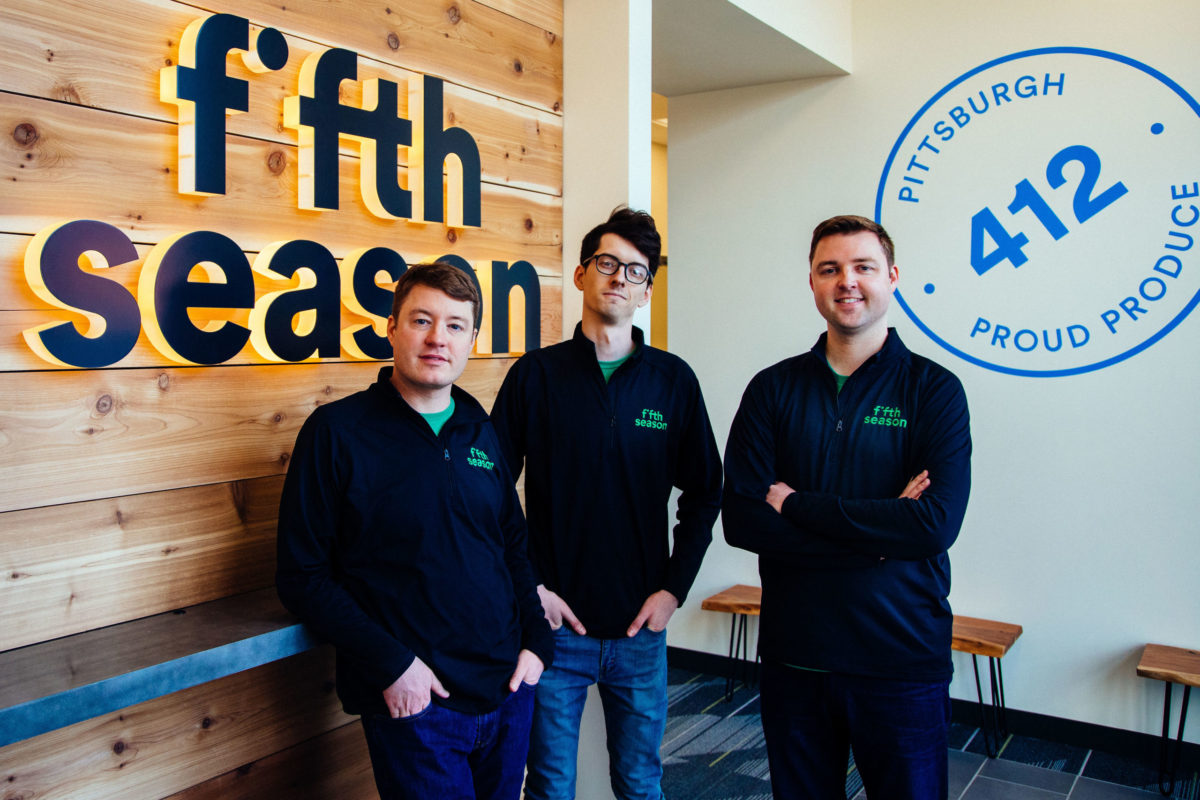The agtech startup offered salad kits filled with fresh produce grown by using advanced robotics. With its tens of millions in VC backing and the recent unveiling of a new salad product in an eco-friendly package, the 2015-founded company seemed on track for another year of growth.
However, according to reports from employees and the Pittsburgh Business Times, as of this past Friday, Fifth season is shutting down.
The company also had a farm facility in Braddock where it grew its produce and counted around 100 employees, some of whom have already taken to lamenting the closure on LinkedIn.
“Unfortunately, sometimes the timing is just wrong and recessions hit companies differently,” a former software engineer wrote on LinkedIn last week. “Fifth Season will be shuttering its doors as of today and my heart is broken for the loss of potential, but I’m excited for my next chapter.”
Fifth Season did not respond to Technical.ly’s request for comment.
Why startups fail
This comes on the heels of the Argo AI shutdown that shocked the Pittsburgh region. Although the products made by Fifth Season and Argo AI, an autonomous vehicle technology company, are worlds apart, the people Technical.ly spoke to about this turn of events agree the closures are just a reminder of a harsh reality: Startups frequently fail.
“A failure is much more common than success,” Sean Sebastian, a partner at Black Tech Nation Ventures and Birchmere Ventures, told Technical.ly. “You know, the successes get lauded and praised and put on the cover of blogs, or whatnot. The failures usually kind of go away quietly, with some few notable exceptions.”
The tradeoff of the potential for a high return on an investment is a huge potential that things won’t work out. So why do startups with millions in VC dollars behind them fail? Usually the answer is money.
“It’s sort of pretty simple and obvious at that level, the money’s gone, the lights go out,” Sebastian said. “The question is, ‘why do they run out of money,’ they either are unable to achieve profitability or scale such that it might be acquired with the capital on hand.”
Alternatively, the investor said, the issue could be that a startup achieved whatever their original goal was and produced a product, but the market has moved on to a product made by a sometimes “better funded” competitor. In either case, the end result could be having to close up shop due to costs.
“This is a very high risk, very high reward business,” Sebastian said.

Fifth Season cofounders (L to R) Brac Webb, Austin Lawrence and Austin Webb. (Courtesy photo)
Olga Pogoda, now chief operating officer of Larimer-based drone software maker KEF Robotics, is inclined to agree. Having spent several years in the world of startups, she said that she wished more people in the tech field were willing to share their failures due to how high the possibility of not succeeding is. Understanding where things went wrong or instances where all parties involved did their best only to have it not work out could serve future founders well.
In Pogoda’s experience working with startups at both Project Olympus, an incubator at Carnegie Mellon University, she said she always encourages people to understand their markets because broadly speaking, in addition to running out of money, sometimes the problem with startups is that there’s no market for the product.
“Sometimes the problem they’re trying to solve is not so bad that people want to spend money on it,” Pogoda said.
In the case of Fifth Season, although Pogoda feels for everyone involved, she doesn’t believe that the shutdown signals anything bad for startups in Pittsburgh generally. It does, however, remind that we’re in the midst of an economic downturn happening not just in the city but throughout the country.
“This and Argo AI are very unfortunate events,” Pogoda said. “But I don’t think that they really speak to the Pittsburgh ecosystem. There’s plenty of thriving startups and small businesses.”
Agtech challenges
As a Pittsburgh leader in the industry, Bloomfield Robotics CEOMark DeSantis shares her sentiments. Running an agtech startup can be hard, he said. DeSantis described this subset of the tech industry as one that can sometimes be “relentless.” Although he didn’t personally interact much with Fifth Season, he thinks they should be commended for trying.
“I think that they put in a great effort,” Desantis said. “In vertical farming, it’s a challenging market, because there are some very, very large players and in an industry where you have people getting hundreds of millions of dollars in getting to a certain minimum scale, that can be challenging for a company that is not able to reach that scale.”
The reasons behind Fifth Season’s shutdown are still unknown, but Desantis also noted, as others did, that the startups often fail and the economy is still in a precarious place.
From start to finish, founding a company and keeping it running is no simple feat. Whatever the case was for Fifth Season, he doesn’t see the news as a sign of doom for the agriculture tech industry, just a reminder that not every startup gets a happy ending.
“I just treat this not so much as any kind of trend in agritech is so much as it’s just the real challenge of trying to do a really hard thing,” Desantis said.
Atiya Irvin-Mitchell is a 2022-2024 corps member for Report for America, an initiative of The Groundtruth Project that pairs young journalists with local newsrooms. This position is supported by the Heinz Endowments.Before you go...
Please consider supporting Technical.ly to keep our independent journalism strong. Unlike most business-focused media outlets, we don’t have a paywall. Instead, we count on your personal and organizational support.
Join our growing Slack community
Join 5,000 tech professionals and entrepreneurs in our community Slack today!





